Germany on the Wrong Track: The “Synodal Way” – a Second Reformation?
If something has become clear in recent years or decades, it is the impression that Germany is increasingly moving away from all that is considered common practice by its neighbours.
Germany is turning itself into a European exception and threatens to drag the whole continent along on its “Sonderweg” (special path) – not for the first time in recent history. Whether it is the mass opening of the European borders for unbridled poverty migration from Africa and the Middle East, which Germany forced through against the resistance of most of its neighbours; whether it is the shutting down of its own nuclear power plants, which has reduced Germany to an energy dwarf loyal to Russia, which nevertheless seeks to impose its decision (including Russian gas imports) on its neighbours; whether it is Germany's Ukraine policy, in which the self-proclaimed "leader" of the continent, despite Scholz’ “Zeitenwende”, has put the brakes on all Western European military aid to Ukraine for months; or whether it is finally the implementation of absurd LGBTQ and gender theories which, with German help, are now to be imposed on all other neighbouring states and even on EU legislation - Germany has played an extremely questionable role in recent years and contributed more to the disintegration of the European unification process than any of its neighbours - the allegedly so "illiberal" and "anti-European" governments of the eastern EU states expressly included.
Now the last institution that has still bound Germany into a broader extra-political moral and cultural consensus with its neighbours, as it depended on decisions that were beyond the sole discretion of the political and media elite of the Federal Republic, is to break up. To the horror of the entire world church, the so-called "Synodal Way" of the German Catholic Church has decided on a reform package, the implementation of which is to definitively transform what is left of Catholicism in Germany into a variant of the politically correct Protestant churches. The list of resolutions supported by a majority of the bishops as well as other participants (as long as they had not left the whole project in protest beforehand) is long and reads like a summary of all those "demands" that one usually only hears from "woke" circles: Let us just mention a pseudo-sacramental blessing to be provided for homosexual couples, the opening of the church registers for the registration of "trans" and "intersex" identities - and the abolition of the celibacy of priests. In short, the German Catholic Church is breaking with much of what has been the consensus within the universal church for 2000 years.
Whatever the outcome of the current situation, there will inevitably be a further deepening of the German “Sonderweg” - with dramatic consequences for the whole of Europe. If the Pope refuses to give his approval, an extensive schism of the German Church will (once again) come within reach. It will not only be surely met with applause from the media and politics, but will also, as in the 16th century, find imitators elsewhere, where people would like to be just as "progressive" as in the Federal Republic. If, on the other hand, the Pope gives his blessing to the “Synodal Way”, this would also have a profound effect on the entire world church and would probably cause massive discord - although this time, it would rather be the conservative forces that would break away from such a “reformed” majority church. So if the Vatican does not succeed in pacifying the "demands" of the Synodal Way and letting them die off by themselves to avoid a major rupture, we will be faced with a historical situation with profound implications for all the future of Europe.
This will also affect German-Polish relations. As it is obvious that the Polish Church in its present form is hardly prepared to go along with the German “Sonderweg”, the developments described above must further deepen the ever-widening cultural and political abyss between the two countries, bridged by only some last remnants such as the common Catholic tradition in Poland and (West and Southwest) Germany. The size of possible areas of compromise are therefore currently melting away like snow under the sun, and if traditional Catholicism disappears, there will soon hardly be any common ground for discussion and understanding between the two neighbours, excluding possibly the temporary and changeable day-to-day questions of power and economic policy. Sorry, my mistake: it is actually only the areas of cultural-patriotic contact that are currently dwindling – while those of a globalist and "progressive" compromise are growing steadily.
For the current discussions about Pope John Paul II show that, more than ever since the fall of communism, the Polish Catholic Church in its present form is caught in the crossfire of the media, activists and opposition politicians, and is slowly but surely losing the almost unanimous support among the population that has long distinguished it. If, as is to be expected, the above should also influence the outcome of the next elections in autumn, and if a new, left-liberal dominated coalition government comes to power, this would also have direct consequences for the future of the Catholic Church in Poland. The Church would come under increasing pressure due to the weakening of its state-supporting role and would sooner or later, like the churches of Western Europe, see itself exposed to the temptation of an alliance with the mainstream media and thus the Left. The so-called "Synodal Way" of the German neighbour would sooner or later probably also become a blueprint for the reform-minded forces within the Catholic Church in Poland. Even if the readiness of the Polish society for such a profound reform is certainly (still) limited, one cannot help but notice a certain acceleration of Poland's self-adaptation to the social and cultural dissolution phenomena of the West in recent years. Germany, after having been the most important vector of Poland's Christianisation in the Middle Ages, would then become the catalyst of the dissolution of its hitherto traditional religious identity - truly sad times.
Read also
Interview with Anna Tompson, member of the “European Fraternity”
This is the eighth instalment of our new interview series, called “Don’t just criticise, create!” David Engels speaks with European artists, philosophers, priests, intellectuals, activists, and artisans who have each decided not only to lament 'the decline of the West' but also to endeavour to help reverse it. They have done this by making something new, and also perhaps something beautiful, true, and good.
David Engels
Six Years in Poland
Your Excellencies, Dear Ladies and Gentlemen, First of all, I would like to express my warmest thanks to
David Engels
“Don’t just criticise, create!” Interview with Gerd Morgenthaler, member of the “Network for Academic Freedom”
This is the third instalment of our new interview series called, “Don’t just criticise, create!” David Engels speaks with European artists, philosophers, priests, intellectuals, activists, and artisans who have each decided not only to lament 'the decline of the West' but also to endeavour to help reverse it. They have done this by making something new, and also perhaps something beautiful, true, and good.



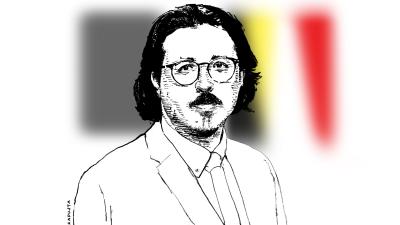

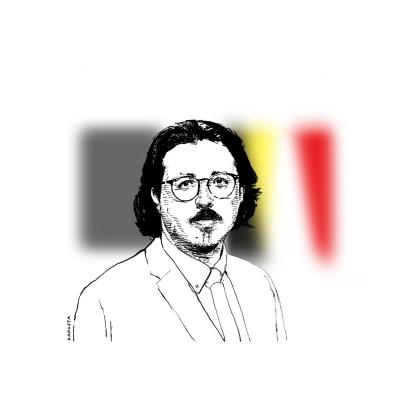
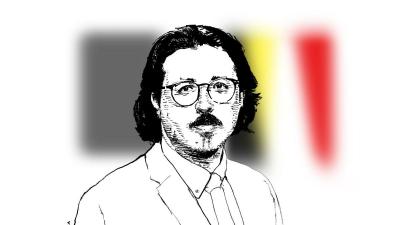

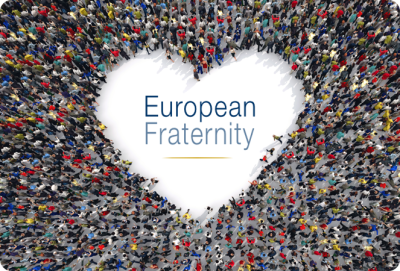

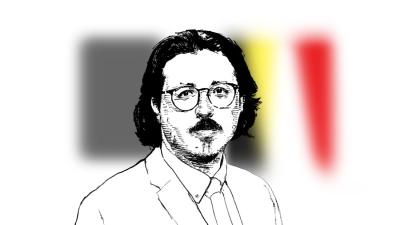

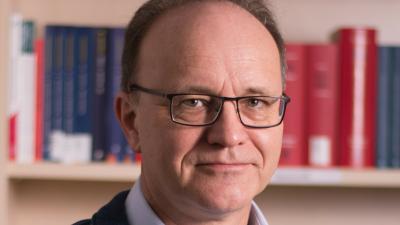

Comments (0)